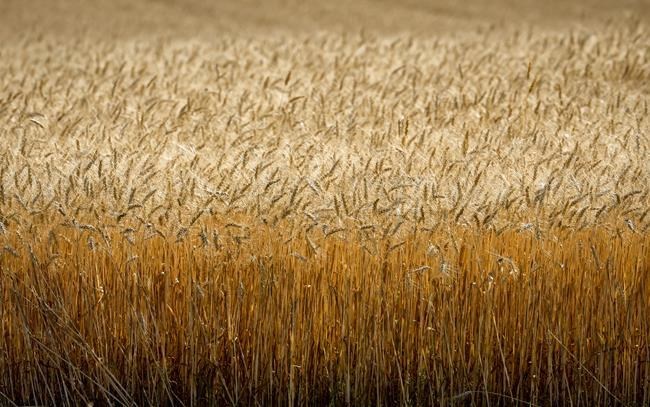CALGARY — Canadian farmers are on track to produce a better crop this year, even as the memory of a punishing drought last year remains fresh in the Prairie provinces.
Early estimates from Statistics sa╣·╝╩┤½├¢ suggest crop yields will be higher this harvest because of better growing conditions in Western sa╣·╝╩┤½├¢.
The agency said Wednesday it expects higher production levels for many crops, including canola, barley, soybeans and corn.
In a phone interview from his combine, Jason Lenz — who farms in the Sylvan Lake area of central Alberta — said the quality of this year's crop is also looking good.
"We’re ahead of schedule by at least a week from where we normally are with harvest, and the quality of the grain we’ve taken off so far has maybe been some of the best," Lenz said. "The wheat in particular is the best we’ve ever harvested on our farm."
After a late start to seeding due to poor weather, much of the Prairies has received consistent precipitation since June this year.
That's a sharp contrast from 2021, when a severe drought withered crops in the fields. According to Agriculture and Agri-Food sa╣·╝╩┤½├¢ statistics, Western Canadian production of principal field crops fell by more than 40 per cent year-over-year in 2021, and was nearly 37 per cent below the previous five-year average.
For the country as a whole, total 2021 field crop production for sa╣·╝╩┤½├¢ was more than 30 per cent lower than in 2020 and 27 per cent below the previous five-year average.
While Lenz's farm actually received more moisture in 2021 than southern parts of the province, he's still relieved to see a nice-looking crop this year. Last year, a July hailstorm destroyed his entire wheat crop.
"It may have been the first year ever I didn’t have a bushel of wheat to sell," he said.
According to Statistics sa╣·╝╩┤½├¢, wheat will be among the most dramatic yield increases across the country this year. Nationally, wheat production is projected to increase by 55.6 per cent year-over-year to 34.7 million tonnes in 2022, according to Statistics sa╣·╝╩┤½├¢.
Wheat production in Alberta, the province which was hardest-hit by drought last year, is projected to increase by 80.1 per cent this year to 11.6 million tonnes.
Lenz cautioned that the final tally may be less than that, as the Statistics sa╣·╝╩┤½├¢ numbers are based on satellite imagery and modelling from July and don't reflect the impact of August's hot, dry weather which could have impacted yields.
Still, he acknowledged that the mood in farm country is far more positive this year than it was last year.
"If all harvests were this easy, there'd be a lot less stress," he said.
Farmers who do get a good crop should be able to capitalize on this year's high prices.After flattening out slightly over the summer, grain prices are expected to remain relatively strong in the immediate future due to tight Canadian supplies, more comfortable but still relatively tight global supplies, and expectations for continued strong international demand.
This report by The Canadian Press was first published Sept. 14, 2022.
Amanda Stephenson, The Canadian Press



